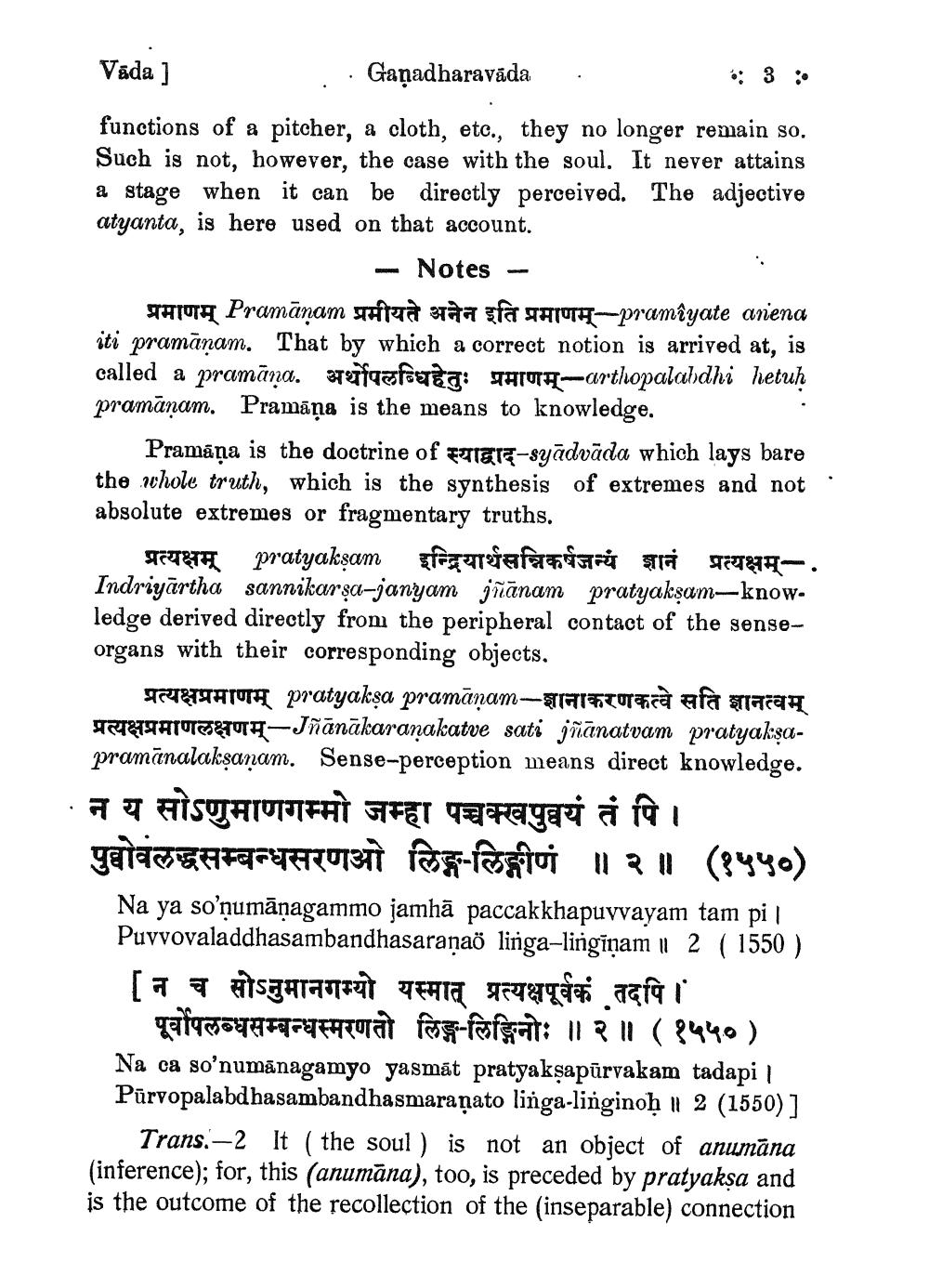________________
Vada ]
... Gañadharavāda
functions of a pitcher, a cloth, etc., they no longer remain so, Such is not, however, the case with the soul. It never attains a stage when it can be directly perceived. The adjective atyanta, is here used on that account.
- Notes - प्रमाणम् Pramānam प्रमीयते अनेन इति प्रमाणम्-pramayate anena iti pramānam. That by which a correct notion is arrived at, is called a pramāna. Stefagfasea: TAT-arthopalabdhi hetuh pramāņam. Pramāņa is the means to knowledge.
Pramāņa is the doctrine of Frier-syādvāda which lays bare the whole truth, which is the synthesis of extremes and not absolute extremes or fragmentary truths.
TETH pratyakşam fegurstafa ri ya 897-. Indriyārtha sannikarşa-janyam jñānam pratyakşam-knowledge derived directly from the peripheral contact of the senseorgans with their corresponding objects.
TETTATH pratyaksa pramāņam-Altaicà afa saca FOTETTATUTOETUT-Jñānākaranakatve sati jñānatvam pratyakşapramānalaksanam. Sense-perception means direct knowledge. न य सोऽणुमाणगम्मो जम्हा पच्चक्खपुवयं तं पि । पुबोवलद्धसम्बन्धसरणओ लिङ्ग-लिङ्गीणं ॥२॥ (१५५०)
Na ya so’numāņagammo jamhā paccakkhapuvvayam tam pil Puvvovaladdhasambandhasaranaö linga-lingīnam 11 2 ( 1550 ) [न च सोऽनुमानगम्यो यस्मात् प्रत्यक्षपूर्वकं तदपि ।
getrof frorat foss-festsai: 112 11 ( 8440) Na ca so'numānagamyo yasmāt pratyakşapūrvakam tadapi | Pūrvopalabdhasambandhasmaraṇato linga-linginoh || 2 (1550) ]
Trans.—2 It (the soul) is not an object of anumāna (inference); for, this (anumāna), too, is preceded by pratyakṣa and is the outcome of the recollection of the (inseparable) connection




